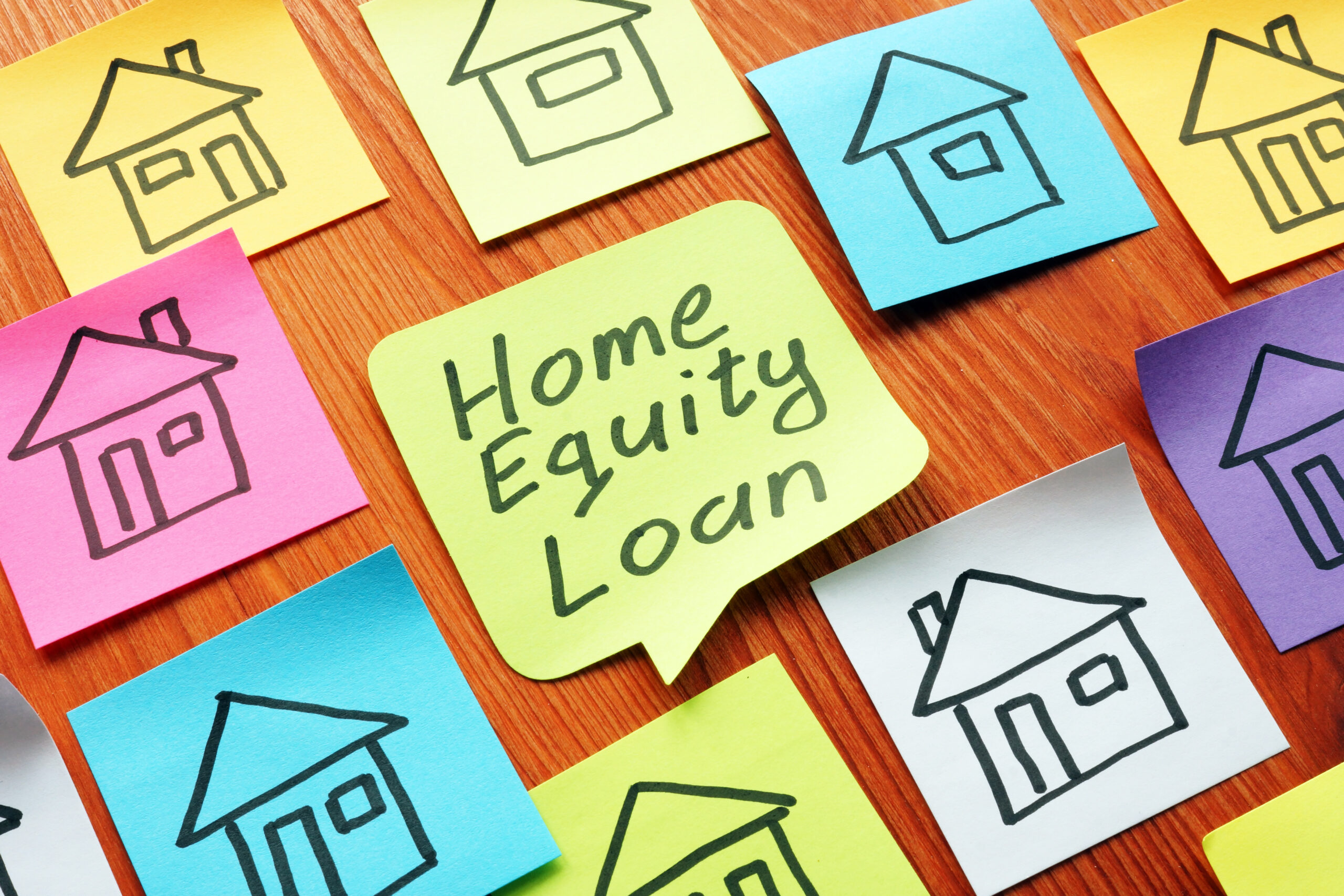So far, the 2022 housing market has been hot—and we’re not just talking about the temperature outside! This year has seen record-breaking sales, especially when it comes to how fast homes are selling.
We are in a seller’s market—in other words, there are more buyers than there are homes available for sale. The lower-than-usual number of homes on the market means that when a house does go up for sale, it tends to sell fast—in a matter of days or even hours.
While this market does favor sellers, listing your home in these conditions can feel like riding a roller coaster. It’s fast-paced, daunting, and thrilling all at the same time. In these situations, preparation is key!
Here’s how to get you and your home ready for a successful sale.

1. Prepare Your Home to List
Don’t Skip the Deep Clean
One mistake that many sellers make in this fast-paced market is assuming that their home will sell, no matter what condition it’s in. While buyers don’t have as much leeway to be picky in a seller’s market due to the low inventory, you still want your home to look its best.
The basics—decluttering, a thorough deep clean, making any necessary repairs—are still essential to help you get top dollar for your sale. We’ve got plenty of resources and advice to make sure your house is in tip-top shape before it hits the market:
- Download our Seller’s Packet
- Check out our Room-by-Room Cleaning Checklist
- Read our 7 Ways to Increase Your Home’s Value Before Selling blog
Some updates—such as repainting or replacing flooring—may not be necessary in a seller’s market. At the end of the day, trust your agent to guide you on what lengths you need to go to to prepare.
Make a List of Major Updates
Also, be sure to give your Urban Acres REALTOR® as much information as possible on any updates you’ve done to the house. This especially applies to bigger-ticket home renovations such as a remodeled kitchen, new AC/furnace and other major appliances, a recently-replaced roof, and so on. Because the market is moving so quickly, many offers are being made not subject to inspection. Therefore, as much information as you can give buyers and their agents on home updates is extremely handy.
To Stage or Not to Stage?
While some choose to forgo the staging in case the home sells quickly, many experts still recommend staging to help your home yield the highest price. Every selling situation is unique; work with your agent to decide if staging is appropriate for your home.
Learn more about the benefits of staging.

2. Price Intelligently
Another common misconception in a seller’s market: you can price your home extremely high because buyers are desperate.
While it is true that buyers are much more likely to end up paying more than asking price in a seller’s market, it’s still important to set your home price (and your expectations) reasonably. Just because the market is hot doesn’t mean you can ask buyers to give you the moon. Plus, when a home is overpriced, buyers are hesitant to make an offer. As a result the property might sit on the market much longer, which can lead to reducing the price or receiving low offers.
Work with your REALTOR® to determine the appropriate amount to list your home. They will take the current market conditions into account when determining the best asking price!
Learn more about home pricing and what other factors affect your home’s value.

3. Determine Your Timeline in Advance
When Do You Need (Or Want) To Close?
If you can’t close until a certain date, or prefer a certain closing date but have some flexibility, be sure to know that date before you list. Tell your agent so they can include it in the online listing, which lets interested buyers know right away what kind of timeline they’re working with.
Do You Need Advance Notice for Showings?
If you need a certain number of hours’ (or days’) notice before a showing, determine that before you list. For example, if you work from home, you may need a few hours’ heads up to vacate your home so the showing doesn’t interrupt any video meetings.
Again, let your Urban Acres agent know so they can include a note in your online listing. That way, your agent, buyers, and buyers’ agents have this requirement in mind while scheduling showings.
Will You Set an Offer Review Date?
In this market, it is becoming increasingly common to set a deadline for offers prior to listing. For example, you may see a home listed on July 10th that says something along the lines of, “Offers due July 15th by 5 p.m.”
An offer review date is a predetermined time that the seller will review any offers that have been made on the home and select the offer they’d like to move forward with. (For comparison, offers are typically reviewed upon receipt, meaning a seller will review offers as they come in and accept the first offer that meets their criteria, rather than waiting to collect multiple offers).
These review dates are typically used in competitive markets when anticipating multiple offers on a home. However, sellers are under no obligation to stick to the review date. They may accept a too-good-to-pass up offer before the set date, or let the offer date come and go without making a decision.
Like many things in real estate, offer review dates have their pros and cons. Talk with your REALTOR® to determine the best course of action for you!

4. Be Mentally (and Physically) Prepared for Multiple Showings a Day
Many buyers are watching the market like a hawk, checking online often to see if any new listings have popped up. As a seller, this means you need to be ready for showings as soon as your home is listed—potentially even the same day it hits the market.
If you aren’t moving or vacating the house before you list, it’s best to plan to be out of town or arrange to stay somewhere else when your home first goes on the market. Your house will likely be a revolving door of people, so it’s just easiest to plan on not being home at all.
Don’t forget to arrange somewhere for your pets to be during this time, too, especially if they don’t do well with strangers. The last thing you want is to overwhelm Fluffy or Fido, or run the risk of them slipping out the door during the showing frenzy.

5. Determine What You Will and Won’t Accept in an Offer
Whether or not you choose to set an offer review date, having a clear idea of what your priorities are helps immensely when considering offers. Is getting the best price most important to you? Are you flexible on your closing date? What are you willing to negotiate, and what (if anything) are your non-negotiable items?
Escalation clauses are another factor to ponder. An escalation clause is a real estate contract that states while the buyer will pay X price for a home, they are willing to pay a higher price should the sellers receive an offer better than theirs. For example, an escalation clause could state that you are willing to offer $250,000 on a home, but should a competing offer come in for higher—say, $255,000—you are willing to pay up to $260,000.
Escalation clauses—sometimes called “escalators”—are used when the buyer is seriously interested and wants to prevent anyone from outbidding them.
Talk with your agent about escalation clauses, the potential pros and cons, and whether you’re willing to entertain them when considering offers.

6. Work with Your Agent to Choose the Best Offer
While multiple offers are not a guarantee in this market, they are much more likely. Work with your agent to select the best offer based on your criteria. Keep in mind that the best offer isn’t always the one with the highest price. Trust your agent to review and walk you through the fine print.
Your REALTOR® can also help you craft a counter offer if necessary. Negotiations tend to move fast, so it’s important to choose an agent that is responsive and on the ball!

7. Plan Ahead for Your Next Move
Keep in mind that if you’re looking to move to another home, once you sell, you become the buyer. The last thing you want is to sell your home and not know where you’re going next!
Should you buy a home before you sell your current home? It’s an age-old question, no matter what the market is like. Some people feel more comfortable buying a home before selling in a seller’s market. With inventory low, their sale is likely to be a quick one, minimizing the time they’ll have to shoulder two mortgages.
Financials also play a big role—for example, if you need the money from your home sale to purchase your new home. At the end of the day, there’s no right or wrong answer. It all depends on your unique situation.
Whether or not you choose to sell before securing a new home, the important thing is to have a plan—even if that plan is putting your belongings in a storage unit and staying with friends or family for a few weeks!
In Summary
If we had to sum up this blog in just a few words, it would be: “Ask your Urban Acres agent!” We are your guide when navigating this whirlwind market. We’re here to light the way and make the process as smooth as possible for you!
Ready to sell and need a listing agent? Explore our roster of 50+ expert REALTORS®! Looking to buy a home as well? We have plenty of tips for buying in a hot seller’s market, too.





